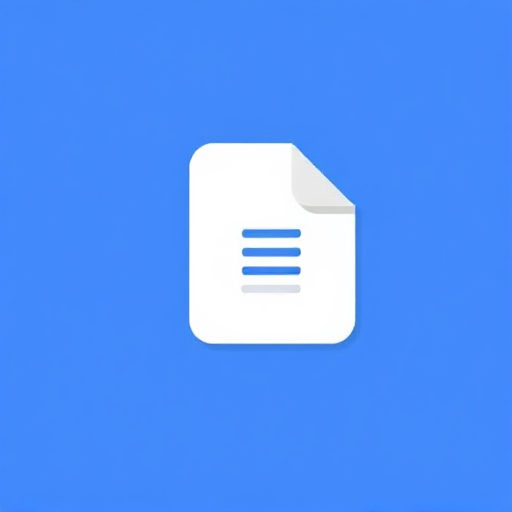
Python is one of the most popular programming languages in the world, thanks to its simplicity, versatility, and wide range of applications, from web development and data analysis to artificial intelligence and machine learning. Whether you’re just getting started or looking to deepen your skills, there are plenty of resources available to help you master Python. In this article, we’ll explore the best resources for learning Python programming, categorized into free, paid, and specialized tools to guide learners at every stage.
1. Interactive Platforms
a. Codecademy
Codecademy offers an interactive Python course where you can write Python code directly in your browser. The course covers everything from basic syntax to object-oriented programming and data structures. It’s perfect for beginners who prefer hands-on learning.
Pros:
- Interactive lessons.
- Instant feedback.
- Beginner-friendly with practical examples.
Cons:
- The free version is limited; many features are locked behind a paywall.
Website: Codecademy Python Course
b. DataCamp
DataCamp is great for learners who want to focus on Python in the context of data science. It provides interactive Python courses, specifically tailored to handling data, working with pandas, numpy, and creating data visualizations with matplotlib.
Pros:
- Focus on Python for data analysis.
- Real-life case studies and projects.
- Interactive coding challenges.
Cons:
- Requires a subscription for full access.
Website: DataCamp
c. SoloLearn
SoloLearn provides a Python tutorial that’s beginner-friendly and great for people on the go. You can learn Python through mobile apps, which makes it easy to practice coding anytime and anywhere.
Pros:
- Mobile-friendly.
- Active community for problem-solving.
- Free to use.
Cons:
- Less depth compared to other platforms.
Website: SoloLearn Python
2. Books
a. “Automate the Boring Stuff with Python” by Al Sweigart
This book is ideal for beginners who want to dive into practical Python. It teaches Python through real-world projects such as automating tasks like sending emails, scraping websites, and organizing files.
Pros:
- Practical examples.
- Excellent for beginners.
- Available for free online.
Cons:
- More project-oriented than theory-heavy.
Website: Automate the Boring Stuff
b. “Python Crash Course” by Eric Matthes
This is one of the best Python books for beginners. It covers Python fundamentals in the first part and provides practical projects in the second part, such as building a simple video game and a web app.
Pros:
- Easy to follow for beginners.
- Emphasis on projects.
- Structured and clear explanations.
Cons:
- Limited coverage of advanced topics.
Website: Python Crash Course
c. “Learning Python” by Mark Lutz
“Learning Python” is an extensive guide that takes a deep dive into Python and is perfect for learners who want to gain a solid understanding of the language.
Pros:
- In-depth coverage of Python.
- Suitable for learners who want a more thorough understanding.
- Detailed explanations of Python’s core concepts.
Cons:
- Can be overwhelming for beginners due to its depth.
- Not as project-oriented.
Website: Learning Python
3. Video Tutorials
a. Python Programming (freeCodeCamp)
freeCodeCamp offers a comprehensive 4-hour video on Python programming. It’s one of the best resources for anyone who learns well through video tutorials. The course covers basic syntax, data structures, and more advanced topics like file handling and web scraping.
Pros:
- Free and accessible.
- Full-length course.
- Easy to follow along with.
Cons:
- Not as interactive as other platforms.
Website: Python Programming – freeCodeCamp
b. Corey Schafer’s Python Tutorials
Corey Schafer’s YouTube channel is one of the best for Python learners. His Python tutorials are well-structured and comprehensive, covering everything from the basics to more advanced topics like web development and machine learning.
Pros:
- Clear and concise explanations.
- Covers a broad range of topics.
- Free to access.
Cons:
- May be challenging for absolute beginners.
Website: Corey Schafer Python Tutorials
c. CS50’s Introduction to Computer Science (Harvard)
Though not Python-exclusive, this free online course on edX by Harvard University introduces programming using Python and other languages. It’s a rigorous introduction to computer science and programming, perfect for those who want to explore Python in depth.
Pros:
- Free and high-quality.
- Covers computer science fundamentals.
- Teaches Python and other programming concepts.
Cons:
- Lengthy and might be too advanced for total beginners.
Website: CS50 Introduction to Computer Science
4. Documentation and Forums
a. Official Python Documentation
The official Python documentation is an indispensable resource for any Python programmer. It’s where you’ll find detailed descriptions of all of Python’s features, libraries, and functions. It’s especially useful once you have the basics down and want to learn more advanced techniques.
Pros:
- Authoritative and comprehensive.
- Excellent for reference.
- Free to use.
Cons:
- Can be overwhelming for beginners.
Website: Python Docs
b. Stack Overflow
As a community-driven Q&A platform, Stack Overflow is a goldmine for Python developers. If you get stuck on any Python problem, it’s highly likely that someone has already asked about it. You can search through threads, ask questions, and get support from the Python community.
Pros:
- Community-driven answers.
- Solution-focused.
- Great for troubleshooting.
Cons:
- Not structured for learning from scratch.
Website: Stack Overflow Python
c. Reddit’s Learn Python Subreddit
The “Learn Python” subreddit is a helpful community where beginners and experts alike can share resources, ask questions, and discuss Python-related topics. You’ll find recommendations for books, courses, and tutorials, as well as answers to specific coding challenges.
Pros:
- Community support.
- Diverse resources and tips.
- Great for interactive learning.
Cons:
- Information can be scattered or disorganized.
Website: Learn Python Subreddit
5. Advanced Tools and Courses
a. Real Python
Real Python offers a combination of articles, tutorials, quizzes, and projects that help learners tackle real-world Python challenges. They cover everything from beginner topics to advanced programming paradigms, including object-oriented programming, web development, and working with APIs.
Pros:
- A wide range of topics from beginner to advanced.
- High-quality, in-depth tutorials.
- Professional-level content.
Cons:
- Premium content requires a subscription.
Website: Real Python
b. MIT OpenCourseWare
MIT’s Python programming course, available through MIT OpenCourseWare, offers free access to lecture notes, assignments, and exams. This is an excellent option for learners who want a more academic and structured approach to learning Python.
Pros:
- High-quality content.
- Structured and rigorous.
- Free to use.
Cons:
- Requires more self-discipline to follow.
Website: MIT OpenCourseWare Python
Python is a versatile and beginner-friendly language, and the resources available for learning it are vast. Whether you prefer interactive platforms, video tutorials, books, or community support, there’s something for everyone. For beginners, starting with free resources such as Codecademy, SoloLearn, and freeCodeCamp will build a solid foundation. For those looking to expand their skills, diving into books like “Automate the Boring Stuff with Python” and specialized courses like Real Python will enhance your understanding of more advanced topics.
By combining different learning styles and using these high-quality resources, you’ll be well on your way to becoming proficient in Python programming.






